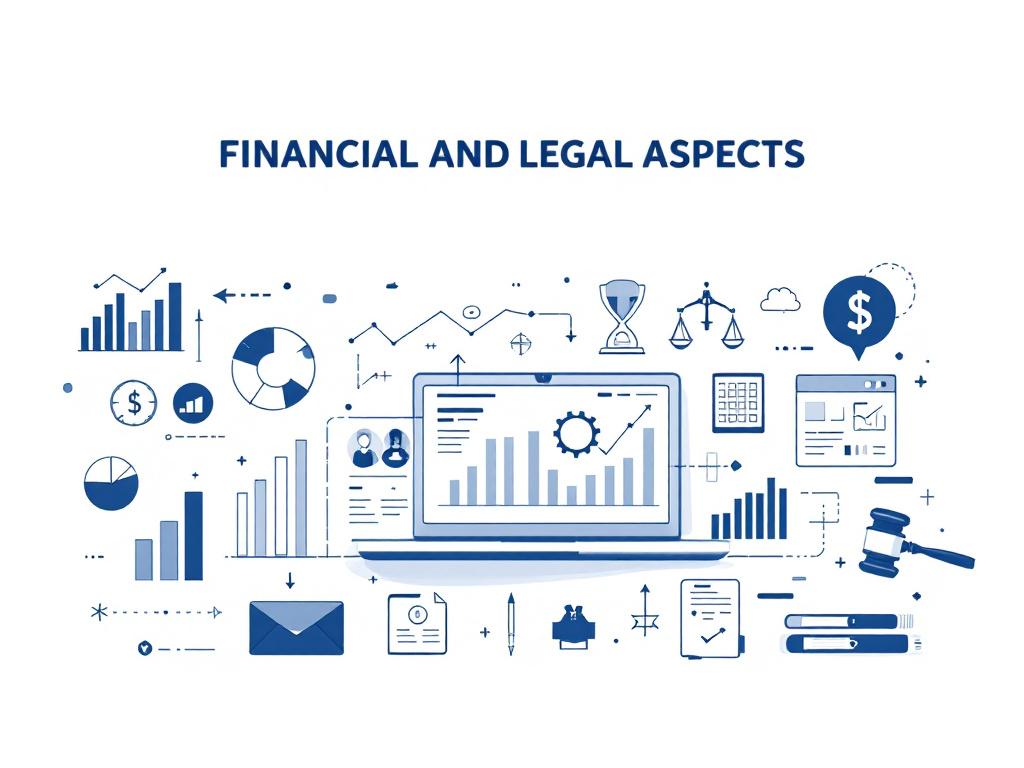Starting an online business is more accessible than ever, but behind the scenes, financial planning and legal compliance are essential to sustainable growth. Whether you’re launching an e-commerce store, a digital consultancy, or a subscription-based platform, understanding the financial responsibilities and legal obligations is crucial for avoiding costly mistakes and protecting your brand.
Financial Considerations When Starting an Online Business
1. Start-Up Budgeting
Before going live, calculate your initial costs:
Domain name and website hosting
E-commerce platform or custom development
Branding and design
Marketing and advertising
Inventory (if applicable)
Tip: Use tools like Excel, Google Sheets, or platforms like Wave or QuickBooks to organize your budget.
2. Choosing a Business Model
Decide how your business will generate revenue:
Dropshipping: No inventory, but lower margins
Digital products: High profit, minimal overhead
Subscription services: Predictable income
Freelance services: Low startup cost, requires skill/time
3. Setting Up a Business Bank Account
Keeping your business finances separate from personal accounts helps track expenses and simplify tax reporting.
4. Bookkeeping and Accounting
You can hire a freelance accountant or use cloud-based software like:
QuickBooks
Xero
Zoho Books
Good bookkeeping helps:
Monitor cash flow
Calculate taxes
Track profits and losses
5. Understanding Tax Obligations
Depending on your location, you may be subject to:
Value-Added Tax (VAT) or Sales Tax
Income tax on business profits
Digital service taxes (for software or app-based businesses)
Check with a certified accountant or tax adviser to stay compliant.
Legal Guidance for Online Business Setup
1. Choose a Legal Structure
Your business structure affects taxation, liability, and regulatory obligations. Common types include:
Choose a structure based on your goals, risk appetite, and location.
2. Register Your Business
Most countries require business registration. Steps include:
Selecting a unique business name
Registering with local/national authorities
Acquiring a business license or trade permit
Use your country's business registration portal to streamline the process.
3. Terms and Conditions + Privacy Policy
Every online business should have:
Terms of Service: Outlines user rights, limitations, and business rules
Privacy Policy: Explains how you collect, store, and use user data (mandatory under laws like GDPR and CCPA)
Use online tools or consult a lawyer to draft legally compliant documents.
4. Protecting Intellectual Property
Protect your digital assets (logos, content, product designs) by:
Registering trademarks
Copyrighting original content
Applying for patents (if you have an invention)
Always check if your brand name is already in use to avoid legal issues later.
5. Complying with International Laws
If you sell globally, comply with:
GDPR (Europe): Data protection and consent
CAN-SPAM Act (U.S.): Email marketing rules
Consumer protection laws: Refund policies, clear product descriptions, and delivery timelines
Case Study: How Legal Compliance Saved a Startup
Background: A digital learning platform launched without a privacy policy or proper terms of use. After collecting user data, it received a GDPR complaint from an EU user.
Action: The company hired a legal consultant to draft all required documents, register the business properly, and update its user interface to collect consent.
Outcome: The issue was resolved with no fine, and the startup gained more trust from users due to its transparency.
Final Thoughts
While starting an online business offers freedom and scalability, neglecting legal or financial planning can lead to penalties, reputational damage, or even closure. With a clear budget, well-documented legal framework, and professional advice, you’ll build a solid foundation for sustainable success.
Remember: Comply now, succeed later.

